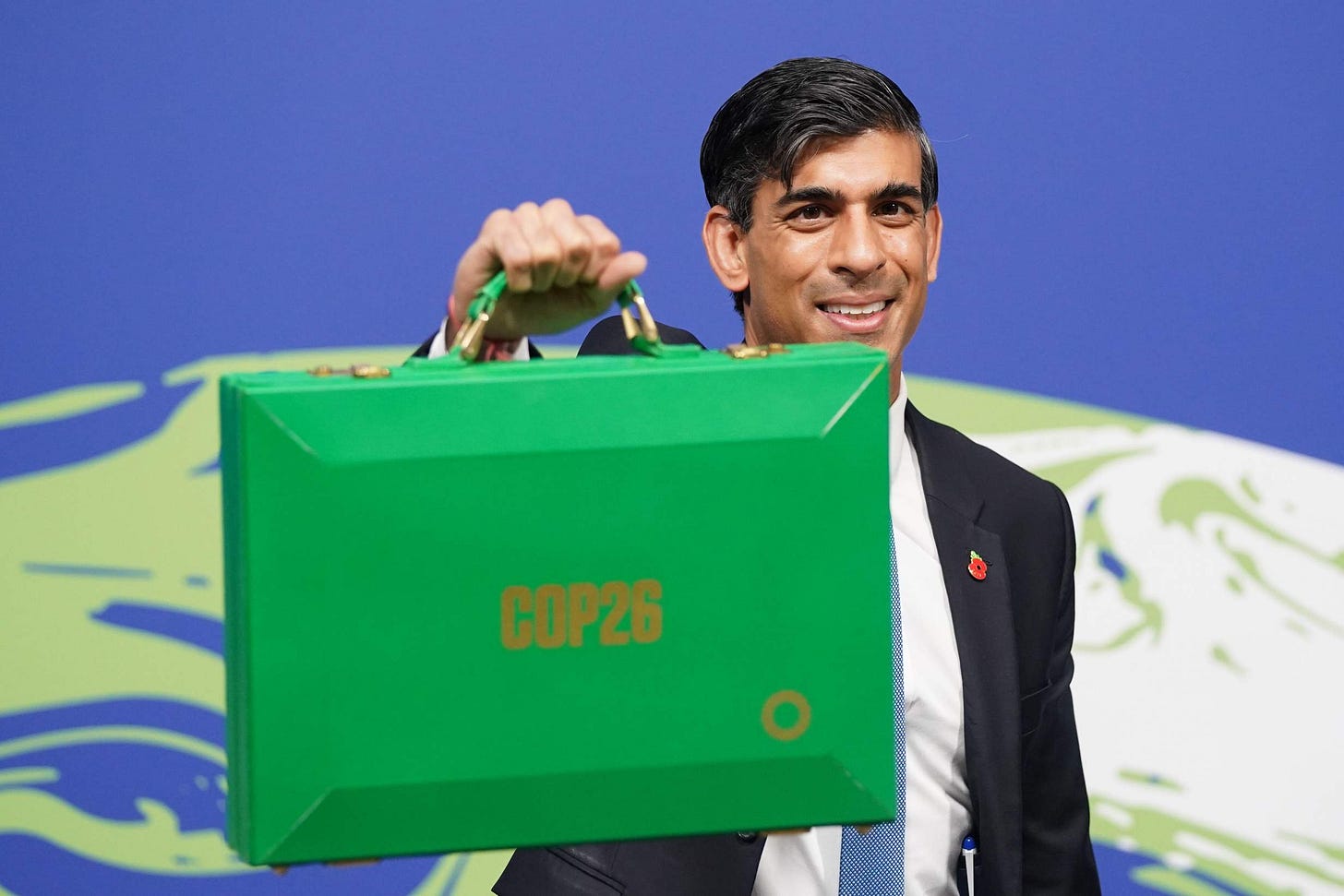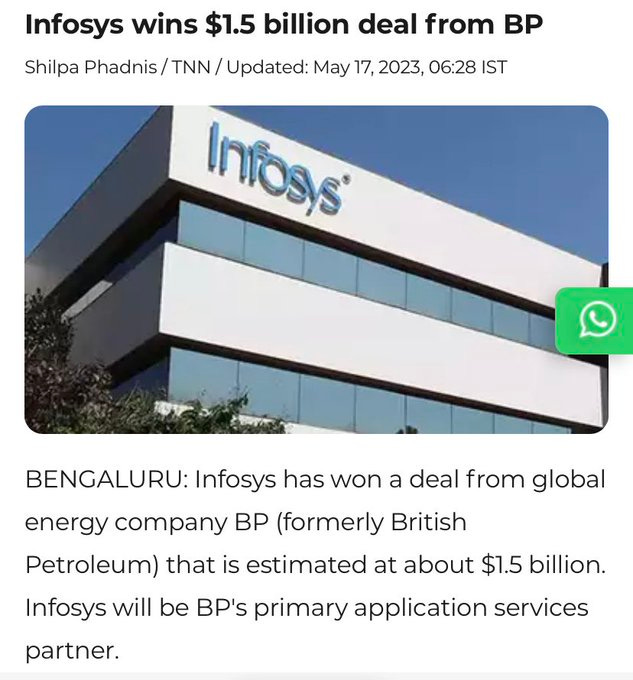How Rishi Sunak's Family Profited from Ties to Oil Giant Shell
In the light of the Prime Minister's plans to extract more North Sea oil, we're reprinting last year's revelation by Nafeez Ahmed how he is tied to fossil fuels and climate change denial
First published in Byline Times on 19 July 2022
As the Government’s net zero strategy has been struck down as “unlawful” in a landmark High Court ruling obtained by the Good Law Project, Byline Times can reveal that every one of the four hopefuls battling to replace Boris Johnson is tied to fossil fuels and climate science denial.
Among them is former Chancellor Rishi Sunak, whose family investments tie him to the second largest oil company in the world by revenue, and now Europe’s top public company.
Fossil Fuel Profits
Frontrunner Sunak, who is currently commanding the most Tory votes, at first glance appears to have a fairly clean register of interests. However, Sunak and his family are intimately linked to the fossil fuel industry through his wife Akshata Murty’s stake in the transnational IT services firm Infosys, one of whose top clients is oil giant Shell.
Despite privately forecasting in the 1980s that its own product would lead to exponentially rising carbon emissions with devastating consequences for ecosystems, sea-level rise, and freshwater depletion, Shell would go on to invest millions in funding climate science denial over decades. The oil giant has continued funding a network of US lobbying groups battling climate policies that support net zero.
Although Sunak’s wife, Murty, is a minority shareholder in Infosys, she owns a £690 million stake in the firm owned by her father and collected an estimated £11.5 million in dividend payments from Infosys over the last year.
While it was widely reported that Infosys continued to operate in Moscow after Russia’s invasion of Ukraine, the firm also has extensive investments in the global oil and gas industry. This means that Rishi Sunak’s family appears to be directly profiting from continued fossil fuel exploitation.
Shell Game
According to an official company brochure about the firm’s “oil and gas practice”, Infosys is partnered with “two of the top five integrated oil and gas companies, three of the top four oilfield services providers, and five of the top 10 independent upstream enterprises across the oil and gas landscape”.
The brochure also confirms that Infosys operates in “collaboration with oil and gas industry bodies”, such as Professional Petroleum Data Management (PPDM) Association, Energistics, the Indian School of Petroleum and Energy and the Society of Petroleum Engineers (SPE).
The firm’s consulting website further boasts of its experts’ “deep experience working with oil and gas clients… to help improve operational efficiency, reduce costs and protect revenues and margins”, with a view to ultimately “boost their growth journeys ahead”.
Yet one of Infosys’s major clients is British oil and gas supermajor Shell, the ninth largest corporate producer of greenhouse gas emissions from 1998 to 2015. Last November, Infosys partnered with Shell to launch the Shell Inventory Optimiser, using artificial intelligence to reduce time and labour costs.
As Byline Times previously reported, in the run-up to the COP26 climate summit Shell lobbyists met the British Government a total of 44 times.
Host of COP26 Met Big Oil and Nuclear Lobbies Over 200 Times
Conflict of Interest?
As Britain enters the second day of a record heatwave amidst unprecedented global extreme weather events this summer around the world, Infosys’ intimate partnerships with regional as well as global oil and gas giants represent a potential conflict of interest for Rishi Sunak.
According to the UK Ministerial Code, ministers are required to fully disclose and explain the business interests of their spouses and families “which might give rise to a conflict” with the duties of Government.
Despite Sunak ostensibly committing to the Government’s net zero goals – now deemed unlawful by the High Court for not going far enough – he also said in the televised debate last Sunday night that Britain must not move “too hard and too fast” on climate action.
With Sunak racing to the lead, his victory could represent a win for firms like Shell, which last week said it expected to revise upwards the value of oil and gas assets it had previously written down, triggering a jump in share prices.
A spokesperson for Rishi Sunak’s leadership campaign told Byline Times: “The Prime Minister’s Independent Adviser recently reviewed all the Chancellor’s declarations of interest and concluded that Rishi has been assiduous in meeting his obligations according to the Ministerial Code.”
Rishi Sunak is Still Trying to Hide His Financial Interests
Keeping it in the Family
The profitable partnership that Rishi Sunak’s family runs with one of the world’s biggest oil companies and funders of climate science denial raises questions about the credibility of his commitment to tackling climate change, and his suitability to lead Britain at a time when dangerous climate change is already wreaking havoc.
But these questions apply also to the other Tory candidates. Both his competitors, Kemi Badenoch and Penny Mordaunt, have received donations from Conservative megadonor Sir Michael Hintze, a billionaire climate science denier who funds the leading anti-climate lobbying group, the Global Warming Policy Foundation (GWPF). Mordaunt received £3,000 from Hintze in January 2000, whereas Badenoch received £1,000 in November 2021 according to the register of interests.
As Byline Times revealed last year, Mordaunt has received £20,000 in donations from a business run by multimillionaire climate science denier Terence Mordaunt, who is also a trustee of the GWPF.
And Liz Truss has longstanding intimate ties to a network of right-wing libertarian think tanks, the ‘Tufton Street network’, which have been deeply involved in climate science denial. Among them is the Institute of Economic Affairs, the hard-Brexit lobby group that has spent decades undermining climate science.
In March 2019, Truss received £8,200 from the neoconservative think-tank, the American Enterprise Institute, which is funded by giant oil firms like Exxon and Shell, and which has played a key role in campaigning to slash environmental regulations. The funds were for a trip to the US to speak at the AEI’s annual World Forum.
The previous year, British taxpayers funded her trip to Washington DC to meet with five right-wing lobby groups attacking efforts to tackle climate change, including the Koch-backed ALEC lobbying network.
Sunak, it would seem, is merely the icing on an unnervingly large Conservative cake whose key ingredients are fossil fuels.
UPDATE on 31 July 2023 by Adam Bienkov: Sunak's family firm Infosys also signed a deal reported to be worth $1.5 billion with BP just two months ago.



